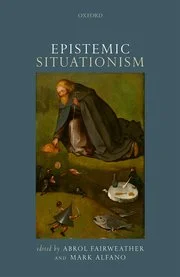Contempt and (dark) humor
/One of the candidate virtues that my research on obituaries has turned up is the sense of humor. How could having a sense of humor be a virtue? Begin by distinguishing the producer's and the recipient's senses of humor. They may often go together, but it's clear that, just as there are communicative virtues related to both speaking well and listening well, so there are dispositions related to both joking well and responding well to jokes.
I'm especially interested in the producer's sense of humor. Here are a few reasons one might consider a well-tuned sense of humor a virtue:
1) Humor constitutively aims to produce laughter and amusement, which are ceteris paribus good things, so it's a way of loving the good. And on the recursive account of value (e.g., Hurka's), loving the good is good.
2) Humor constitutively aims to create bonds of amity between the producer of humor and the recipients of humor. Indeed, Robin Dunbar has shown empirically that laughing together is a very effective way of bonding. Bonds of amity are ceteris paribus good things, so once again we can recruit the recursive account.
I find both of these arguments pretty plausible, but I want to explore two more controversial arguments for considering the sense of humor a virtue:
3) Much humor constitutively aims to sever bonds between the producer and recipients, on the one hand, and some other people on the other hand. Imagine yourself in a room full of people where everyone is laughing but you (even if they're not laughing at you). It's incredibly alienating to not be "in on" a joke. Naturally, I don't think that severing bonds between people is intrinsically good, so I can't as easily help myself to the recursive account of value here. However, if the person being excluded by divisive humor deserves to be spurned or taken down a notch, then such humor would be a way of hating (or contemning) the bad. And on the recursive account, hating the bad is also good. Presumably this is why we find satire directed at dictators, bankers, university administrators acceptable. If this is right, though, it points up a danger of humor that is not fine-tuned. If my sense of humor doesn't express and invite love of the good and contempt for the bad, but rather love of the bad and contempt for the good, then it is vicious.
4) Humor also constitutively involves not taking some alleged norms or values seriously. This can be pretty tame, as in the case of benign wordplay, when the humorist doesn't take the rules of language or communication seriously. It can also (I would say often and typically) be more hard-edged, expressing and inviting contempt. Jokes have butts. A humorist needn't be a nihilist and a cynic, though. It's consistent with spurning one alleged value that one admires and respects some other value. Indeed, contempt may be a way of expressively insisting that one value is lower than another (and hence that one value is higher than another). If this is right, then contemptuous humor is virtuous only if it expresses and invites disdain for the contemptible. Or, slightly less strongly, such humor is virtuous only if there is an acceptable affective perspective from which the target of the humor is contemptible. The importance of this is clearest in cases of successful and unsuccessful dark humor. I've never encountered successful Holocaust humor, though I've encountered plenty of successful Hitler humor. Think Chaplin:
In fact, the only successful genocide joke of which I'm aware is this visual joke, which probably only works because it's about a fictional case:
There's no acceptable affective perspective from which victims of genocidal violence are contemptible, though there are plenty of acceptable affective perspectives from which genocidal tyrants are contemptible. When dark humor is successful, it invites us to adopt an emotional or evaluative point of view from which even our own the pain, suffering, and death is not to be taken seriously. This can be freeing and empowering to the extent that it lets us contrast these things with some other, positive value. It's a version of what Nietzsche, riffing on Bernard of Clairvaux, calls spernere se ipsum.
If this is on the right track, then having a dark sense of humor may be a virtue, but only if one is sufficiently attuned both to what is admirable and to what is contemptible.







Mark Alfano. Cambridge University Press (2013).